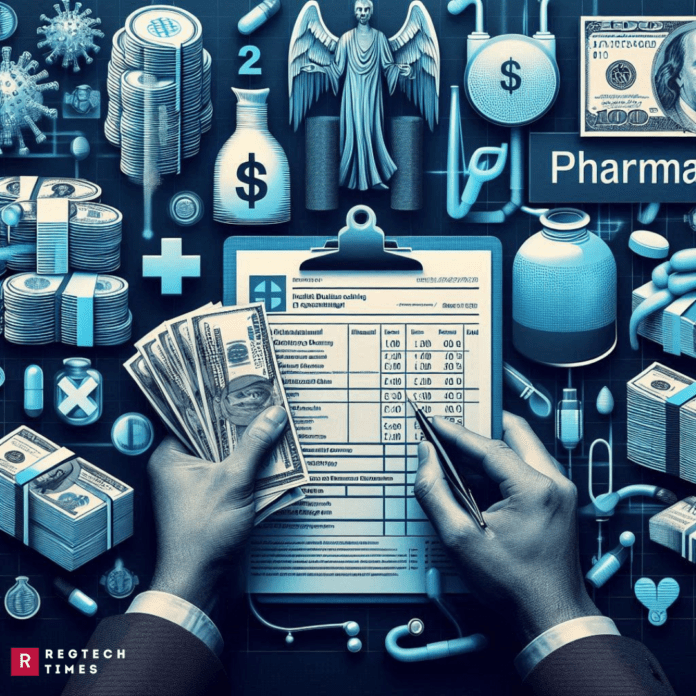In a shocking turn of events, Peter Khaim and Arkadiy Khaimov, owners of multiple pharmacies in New York, have been sentenced for orchestrating a complex health care fraud and money laundering scheme. This case not only exposes the audacity of their actions but also highlights the vulnerabilities within the health care system, especially during times of crisis.
The Scheme Unraveled by Peter Khaim and Arkadiy Khaimov
Operating 16 pharmacies across New York, Peter Khaim and Arkadiy Khaimov exploited Medicare by submitting millions of dollars in false claims. Their method? Manipulating emergency billing codes meant for COVID-19-related supplies to fraudulently bill for expensive cancer medications. These medications, including Targretin Gel 1% and Panretin Gel 0.1%, were never prescribed by physicians nor dispensed to patients, further exacerbating the fraud.
The brothers also falsely claimed these medications were distributed during periods when their pharmacies were closed, exploiting the chaos and emergency provisions of the pandemic to maximize their financial gains.
Money Laundering and Concealment
To conceal their illicit gains, Peter Khaim and Arkadiy Khaimov devised an elaborate money laundering scheme. Over $18 million flowed through shell companies and sham pharmacy wholesalers, meticulously designed to appear legitimate. Funds were even transferred internationally to companies in China, which facilitated distributions to individuals in Uzbekistan. This web of deceit aimed to obscure the origins of their ill-gotten gains.
Luxury and Repercussions
Their fraudulent activities funded extravagant purchases, including real estate and luxury items, highlighting their disregard for ethical and legal boundaries. However, justice has prevailed with Peter Khaim sentenced to eight years and one month in federal prison, and Arkadiy Khaimov receiving a six-year sentence. Moreover, they face significant restitution payments exceeding $18 million, ensuring accountability for their crimes.
Collaborative Efforts and Prosecution
The investigation and prosecution involved a concerted effort by federal agencies such as the FBI, IRS Criminal Investigation, HHS Office of Inspector General, and FDIC Office of Inspector General. Their collaborative work uncovered the depth of the scheme and demonstrated the government’s commitment to combating health care fraud.
The Health Care Fraud Strike Force Program, led by the Criminal Division’s Fraud Section, has played a crucial role in prosecuting such schemes nationwide, recovering billions of dollars and holding thousands accountable. This case highlights the importance of these initiatives in safeguarding public funds and maintaining the integrity of health care systems.
Broader Implications and Lessons
This case is not just about Peter Khaim and Arkadiy Khaimov; it exposes systemic vulnerabilities in health care fraud detection and prevention. The Health Care Fraud Strike Force Program, led by the Criminal Division’s Fraud Section, has played a crucial role in prosecuting such schemes nationwide, recovering billions of dollars and holding thousands accountable.
The sentencing of Peter Khaim and Arkadiy Khaimov serves as a pivotal moment in reinforcing the integrity of health care services. Their exploitation of a global health crisis for personal gain highlights the critical need for vigilance and oversight. Moving forward, strengthened measures against fraud are essential to safeguard public trust and ensure the equitable delivery of health care services.
Conclusion
As communities continue to recover from the pandemic’s impact, the sentencing of Peter Khaim and Arkadiy Khaimov marks a significant milestone in reinforcing the integrity of health care services. Their exploitation of a global health crisis for personal gain highlights the critical need for vigilance and oversight. Moving forward, strengthened measures against fraud are essential to safeguard public trust and ensure the equitable delivery of health care services.
The conviction of Peter Khaim and Arkadiy Khaimov sends a clear message: health care fraud will not be tolerated. Their sentencing marks a significant milestone in the ongoing battle to protect public resources and uphold the integrity of health care systems. As we reflect on this case, it serves as both a cautionary tale and a catalyst for continued efforts to combat fraud and preserve the trust of patients and providers alike.



